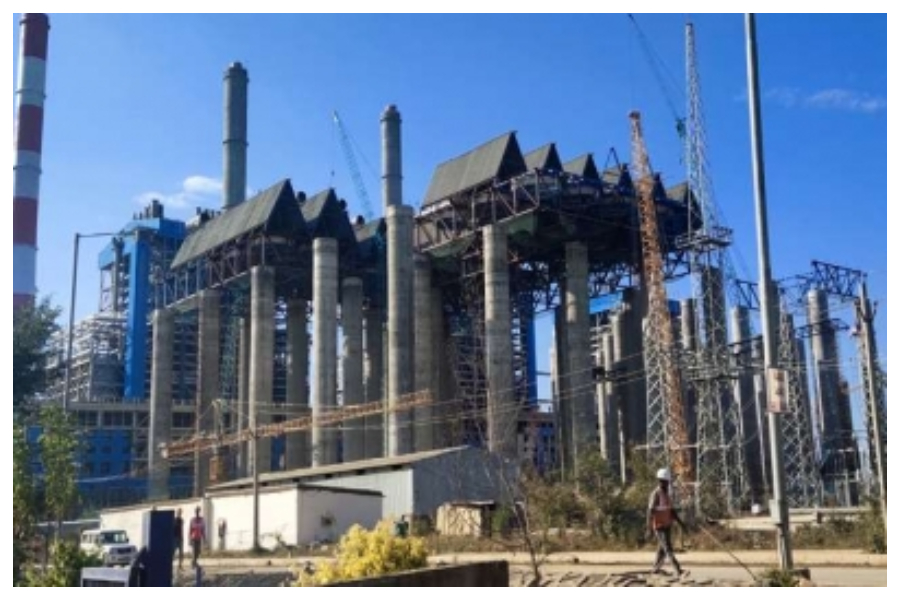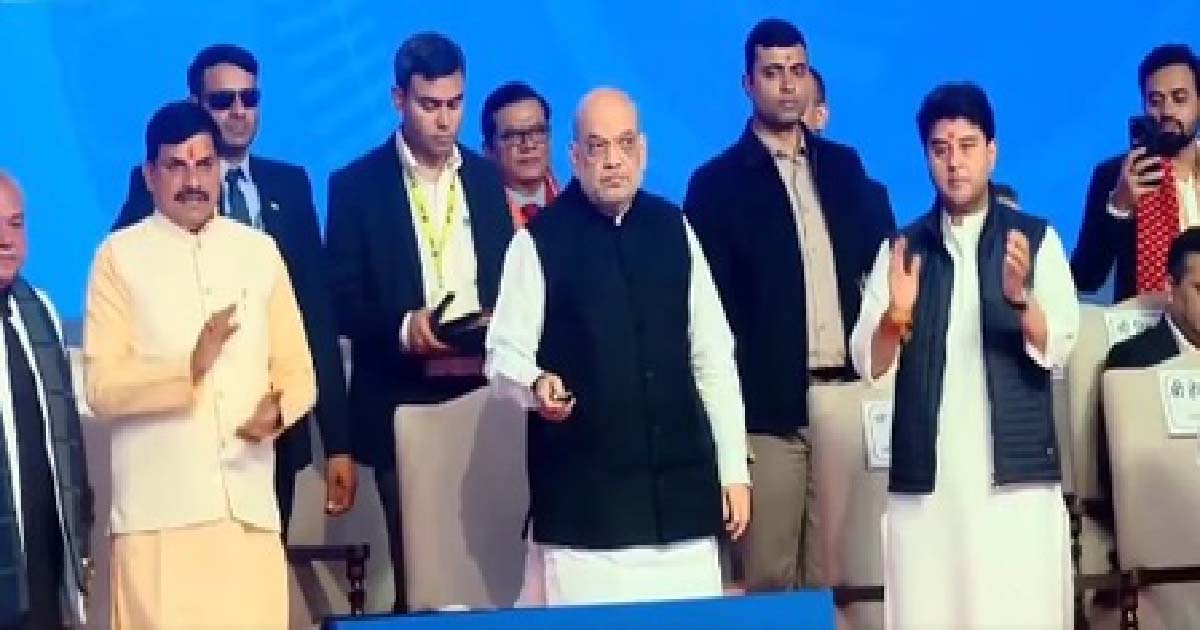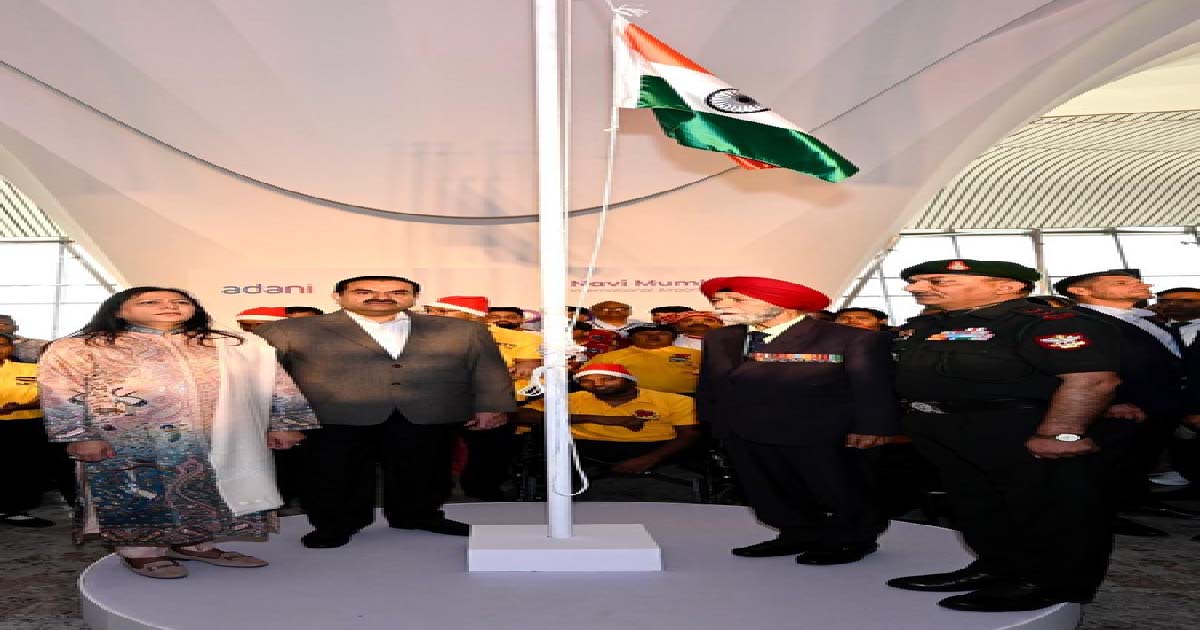Business
Hundreds of crores spent in 23 years, yet NTPC Tandwa project’s future uncertain

Hundreds of crores have been spent in the last 23 years on setting up the National Thermal Power Corporation’s (NTPC) power plant at Tandwa in Jharkhand’s Chatra district, but till date no electricity has been generated from it.
Preparations were underway to start power generation from the first unit of the plant this month itself, but it seems unlikely due to a violent clash between the locals, whose properties were acquired for setting up the plant, and the police on March 7.
The agitated locals set ablaze 56 small and big vehicles deployed at the plant and vandalised the offices. A total of 27 people were injured from both sides in the clashes between the police and the agitating displaced people.
After the violent confrontation, the situation in the project and the surrounding areas are tense. The administration has imposed prohibitory orders in six villages affected by the project.
So far, seven people have been arrested in connection with the violence. Also, an FIR has been registered against 100 named and 800 unidentified persons.
Police are conducting flag marches in the areas around the project ever since the incident. However, 60 per cent of the staff are not coming to the office.
In such a situation, it is almost certain that the proposed trial of the first unit of the plant in March would be postponed.
The project, ever since its foundation stone was laid in 1999, has remained in disputes. People, whose properties were acquired for setting up the plant, have been holding protests for the last two decades raising demands such as financial compensation, rehabilitation and jobs.
On March 6, 1999, the then Prime Minister Atal Bihari Vajpayee had laid its foundation stone and people were hoping that a new chapter of development would begin in the area, which is infamous for Naxalism and backwardness. The target was to make the plant operational by 2002-2003.
Three units of the power plant are being installed here, aiming to produce 1,980 MW of electricity. And it was scheduled that the trial of the first unit, having the capacity of 660 MW, would commence in March 2022.
Equipped with modern technology, for the first time in the country, the thermal power plant is being established using the air-cooled condenser system technology that would bring down the water consumption to just 25 per cent.
With the completion of the project, apart from Jharkhand, electricity would also be supplied to Bihar, Odisha, Bengal and Northeast.
For the project, the land was mainly acquired from six villages and at that time the old law of land acquisition was in force.
Meanwhile, the government made a new law regarding land acquisition, wherein there is a provision that if the project for which the land has been acquired does not get started within five years, then the land will be returned to the farmers.
When the work of the project started after seven years due to delay in land acquisition and several other reasons, disputes erupted over compensation, rehabilitation, jobs to the affected. The work of the project continued to be affected due to dharnas, demonstrations, agitations.
In the last 23 years, there have been more than one hundred confrontations between the NTPC Management, Administration, Police and displaced persons. Also there were numerous incidents of firing, lathi charge and violence.
There were several agreements between NTPC, the administration and the villagers, but the dispute was never fully resolved.
In the meantime, compensation has been paid to most of the ryot or displaced persons. However, the project continued at a slow pace amid the regular interruptions.
About a year and a half ago, the dispute regarding the compensation for the acquired land erupted again. The organisation of the displaced locals started the agitation, saying the compensation received earlier was inadequate.
They intalled tents in front of the main gate of the NTPC project and have been continuously staging a sit-in for the last 14 months.
A senior official at NTPC says that the ryots from whom the land was acquired were given compensation in 2015 itself. “There is no such law that compensation should be given again for the same land. It’s just not possible.”
The agitating farmers have three main demands.
The first is that they should be paid compensation at the rate of Rs 20 lakh per acre and the ryots who have not been paid the compensation should be paid at the new rate along with interest.
The second demand is “each displaced family should be given a uniform rehabilitation package as presently the amount is being given to the people of different areas at different rates”.
Similarly their third demand is “Compensation in lieu of missing raiyati land, Gairmajarua Khas land, and houses, trees, ponds and wells situated on that land; 75 per cent grant to displaced ryots in NTPC-run schemes, and employment for every displaced family in NTPC”.
Business
HM Shah lays foundation stone for 1,655 industrial units ensuring Rs 2 lakh crore investment in MP

Gwalior, Dec 25: Union Home and Cooperation Minister Amit Shah delivered an inspiring address at the ‘Abhyudaya Madhya Pradesh Growth Summit’ here on Thursday, marking the 101st birth anniversary of former Prime Minister and Bharat Ratna recipient Atal Bihari Vajpayee.
Speaking on the theme ‘Investment to Employment – Atal’s Resolve, a Bright Madhya Pradesh’, HM Shah hailed the state’s rapid transformation under the double-engine government, declaring that Madhya Pradesh is emerging as the growth engine of ‘Viksit Bharat’.
HM Shah lavished praise on Chief Minister Mohan Yadav for pioneering initiatives aimed at balanced regional development across the state.
He highlighted CM Yadav’s innovative approach of organising regional investment promotion events and ground-breaking ceremonies in every division, ensuring equitable growth and unlocking the untapped potential of all areas.
“Chief Minister Mohan Yadav has taken thoughtful steps to establish a strong foundation for all-round development through his regional investment committees,” he said, adding that these efforts surpass even the energetic pace set by previous long-serving BJP Chief Minister Shivraj Singh Chouhan.
The Home Minister emphasised the critical importance of symmetrical industrial establishment to leverage Madhya Pradesh’s strategic geographical location.
He pointed to the traditional strength of cotton production in the Malwa and Gwalior-Chambal regions, noting that declining farmer incomes due to unfair prices could be reversed by setting up processing and allied industries locally. This would minimise transportation costs, make cotton farming profitable again, and connect seamlessly to markets in Delhi, western states, and nearby districts.
HM Shah described the day’s massive investment push – with foundation stones laid for 1,655 industrial units worth over Rs 2 lakh crore, expected to create 193,000 jobs – as a fitting tribute to former Prime Minister Vajpayee’s vision of good governance and national progress.
Held in Vajpayee’s birthplace, the summit, he said, embodied the late leader’s ideology of self-reliance, development, and inclusive growth, giving it a grand resonance on this auspicious occasion.
HM Shah expressed hope for continued central support, promising that true welfare stems from aligning with Prime Minister Narendra Modi’s vision for a prosperous India. The event, attended by prominent industrialists and cabinet ministers, reinforced Madhya Pradesh’s commitment to converting investments into widespread employment and regional prosperity.
Business
Gautam Adani hails war heroes, workers, farmers, and specially-abled as NMIA commences operations

Mumbai, Dec 25: Gautam Adani, Chairman of the Adani Group, hailed war heroes, farmers, and the specially abled as the Navi Mumbai International Airport (NMIA) — India’s newest Greenfield airport — welcomed its first passengers on Thursday.
The airport, inaugurated by Prime Minister Narendra Modi on October 8, began its operations on the day of Christmas.
Welcoming the first passengers, the Adani Group Chairman saluted the soldiers who protect the nation, workers who built the airport for their “unbreakable spirit”, farmers who feed the country, and the specially abled who inspire the nation.
“It was a deeply moving moment to stand beside Param Vir Chakra awardees Captain Bana Singh and Subedar Major Sanjay Kumar as the Navi Mumbai International Airport (NMIA) welcomed its very first passengers,” said Gautam Adani, in a post on social media platform X.
“In that moment, alongside the war heroes, stood the other quiet architects of the nation — the workers who built this airport with their bare hands and unbreakable spirit; the farmers and their families who feed India; the social workers who selflessly serve millions alongside the @AdaniFoundation; and our specially abled colleagues who inspire us every single day. For many of them, this was the first flight of their lives,” the Adani Group Chairman added.
“Soldiers who protect Bharat. Workers who build Bharat. Farmers who sustain Bharat. Social workers who serve Bharat. The specially abled who inspire Bharat,” the industrialist said.
Gautam Adani stated that NMIA showcases an opportunity for the country to move forward without leaving anyone behind.
“@AdaniPriti and I were deeply honoured to stand with them at NMIA – a moment that captured what this airport truly represents – opportunity with dignity, and a rising India that moves forward without leaving anyone behind,” the Adani Group Chairman said.
“Their blessings, their courage, and their resilience drive us every single day to build bigger, serve better, and work harder in service of the nation. Jai Hind,” the businessman added.
NMIA is a public-private partnership (PPP) between Mumbai International Airport Limited (MIAL), a subsidiary of Adani Airports Holdings Limited (AAHL), which holds the majority stake of 74 per cent, while the City and Industrial Development Corporation of Maharashtra Limited (CIDCO) hold the remaining 26 per cent.
In the first month, NMIA will operate for 12 hours — between 08:00 hours and 20:00 hours — handling 23 scheduled daily departures.
During the initial launch period, passengers will benefit from services operated by IndiGo, Air India Express, and Akasa Air, connecting Mumbai to 16 major domestic destinations.
Starting February 2026, the airport will transition to round-the-clock operations, expanding to 34 daily departures to meet the increasing needs of the MMR.
NMIA is also conducting comprehensive Operational Readiness and Airport Transfer (ORAT) trials in collaboration with all stakeholders, including security agencies and airline partners.
Business
Gold and silver bring cheers for investors, 2026 outlook remains strong

Mumbai, Dec 25: In a year marked by heightened global uncertainty, precious metals delivered exceptional returns for investors, with silver emerging as a surprise winner.
Silver prices surged by more than 137 per cent — outperforming gold — which also posted a strong gain of around 68 per cent this year.
With equity markets facing volatility, both metals strengthened their position as preferred safe investment options, but silver clearly outshone all traditional choices.
Gold’s strong performance was supported by geopolitical tensions, inflation concerns, and expectations of interest rate cuts by the US Federal Reserve.
A major driving force behind gold’s rally was steady buying by global central banks. For three consecutive years — 2022, 2023 and 2024 — central banks have purchased more than 1,000 tonnes of gold each year.
Alongside this, global investors continued to invest through gold ETFs, using them as a safe place to park funds.
Big global banks have turned increasingly bullish on gold’s outlook. Goldman Sachs has raised its 2026 year-end gold price target to $4,900 per ounce, citing strong central bank demand and ETF inflows.
Deutsche Bank has also upgraded its outlook, projecting gold prices at $4,450 per ounce in 2026.
Silver’s rally, however, has been driven by more than just safe-haven demand. Strong industrial usage has played a crucial role.
Growing demand from sectors such as solar power, electric vehicles, and electronics has significantly increased silver consumption.
At the same time, supply constraints have tightened the market, pushing prices sharply higher.
This dual role — as a precious metal and an industrial input — has helped silver deliver more than double the returns of gold in 2025.
Looking ahead, experts believe the positive momentum in silver could continue into 2026.
Market specialists say that strong industrial demand, limited supply, and supportive global trends could help silver rise by another 15 to 20 per cent next year.
Some analysts expect that in the first half of 2026 alone, silver may generate an additional 20 to 25 per cent return from current levels, though they advise investors to invest gradually, especially if prices see short-term corrections.
Gold’s outlook also remains positive for 2026. Continued central bank buying, possible US rate cuts, and ongoing geopolitical risks are expected to support prices.
Analysts suggest that keeping an eye on central bank activity — whether they continue buying, hold their reserves, or start selling — will be critical, as their actions often signal future price trends well in advance.
“With uncertainty still dominating the global economic landscape, precious metals are likely to continue playing an important role in investor portfolios, offering a mix of safety and growth potential,” experts stated.
Meanwhile, both metal’s prices climbed to new record highs on the MCX on Wednesday morning, helped by a weak US dollar and expectations that the US Federal Reserve may cut interest rates further.
Gold futures for February rose 0.42 per cent to touch an all-time high of Rs 1,38,469 per 10 grams. Silver futures for March jumped nearly 2 per cent to hit a fresh record of Rs 2,23,742 per kg.
In the global market, gold prices crossed the $4,500 per ounce level for the first time. The rise was driven by strong demand for safe-haven assets as investors expect more interest rate cuts by the US Federal Reserve next year.
-

 Crime3 years ago
Crime3 years agoClass 10 student jumps to death in Jaipur
-

 Maharashtra1 year ago
Maharashtra1 year agoMumbai Local Train Update: Central Railway’s New Timetable Comes Into Effect; Check Full List Of Revised Timings & Stations
-

 Maharashtra1 year ago
Maharashtra1 year agoMumbai To Go Toll-Free Tonight! Maharashtra Govt Announces Complete Toll Waiver For Light Motor Vehicles At All 5 Entry Points Of City
-

 Maharashtra1 year ago
Maharashtra1 year agoFalse photo of Imtiaz Jaleel’s rally, exposing the fooling conspiracy
-

 National News1 year ago
National News1 year agoMinistry of Railways rolls out Special Drive 4.0 with focus on digitisation, cleanliness, inclusiveness and grievance redressal
-

 Maharashtra1 year ago
Maharashtra1 year agoMaharashtra Elections 2024: Mumbai Metro & BEST Services Extended Till Midnight On Voting Day
-

 National News1 year ago
National News1 year agoJ&K: 4 Jawans Killed, 28 Injured After Bus Carrying BSF Personnel For Poll Duty Falls Into Gorge In Budgam; Terrifying Visuals Surface
-

 Crime1 year ago
Crime1 year agoBaba Siddique Murder: Mumbai Police Unable To Get Lawrence Bishnoi Custody Due To Home Ministry Order, Says Report












